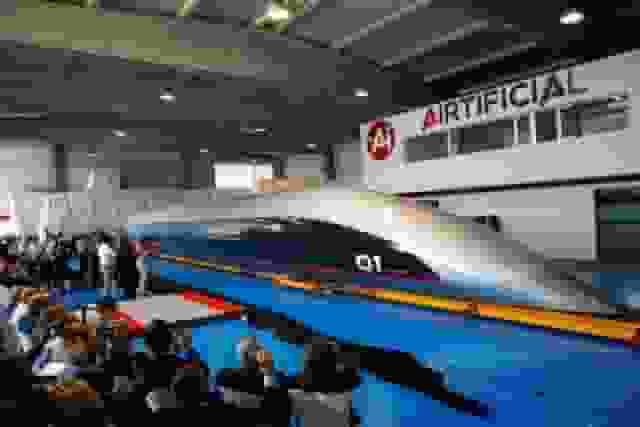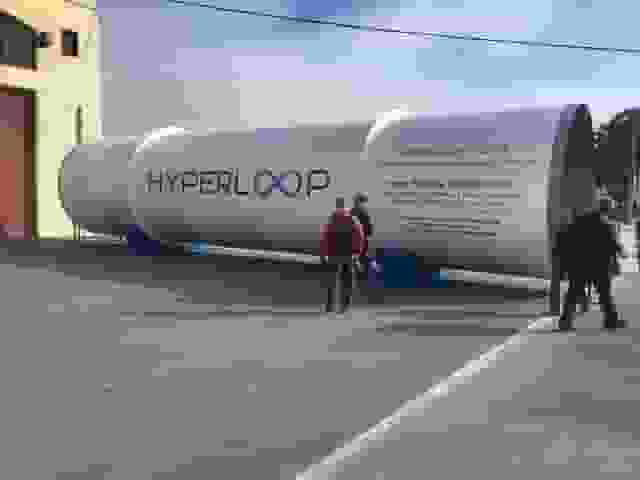
Munich, Germany, is buzzing with excitement as plans for a revolutionary transportation system, the Hyperloop, are underway.
Elon Musk’s brainchild, the Hyperloop, promises to transform the way people travel, potentially reaching speeds of up to 900 km/h (560 mph). The ambitious project could connect Munich with other major cities in the region, marking a significant leap forward in transportation technology.
Hyperloop’s Potential Impact
The Hyperloop concept involves high-speed pods traveling through low-pressure tubes, effectively eliminating air resistance and enabling rapid and efficient transportation. This futuristic mode of transport has the potential to reduce travel times drastically, making it possible for passengers to reach distant destinations in a matter of minutes.
The proposed Hyperloop route in Munich would connect the city with other major hubs, such as Berlin, Frankfurt, and Stuttgart, creating a super-fast transportation network that could transform regional connectivity. The project aims to revolutionize both passenger and freight transport, providing an environmentally friendly and sustainable alternative to traditional modes of transportation like cars, trains, and planes.
Proponents of the Hyperloop argue that it could significantly alleviate traffic congestion, reduce carbon emissions, and boost economic growth by improving accessibility between cities.
Read more: Stimulus Check Update: California Residents To Receive Direct Payments Worth Up To $500 In 12 Days
Conversations on Tomorrow’s Travel

Additionally, the technology’s potential for near-supersonic speeds could revolutionize long-distance commuting, opening up new possibilities for urban planning and development.
However, challenges remain in turning this ambitious vision into reality.
The Hyperloop concept involves several complex engineering and logistical hurdles that need to be overcome. Safety concerns, regulatory approvals, and the substantial financial investment required pose significant obstacles to the project’s successful implementation.
Despite the challenges, Munich’s city officials and various transportation companies have expressed keen interest in exploring the Hyperloop’s potential. Research and development efforts are underway, with collaborations between the public and private sectors to address the technical and regulatory aspects of the project.
The success of the Hyperloop in Munich could pave the way for similar projects in other cities worldwide, transforming the future of transportation on a global scale. As technology continues to advance and the world seeks more sustainable and efficient transportation solutions, the Hyperloop’s potential to revolutionize travel is generating tremendous enthusiasm and anticipation.
While it may take several years before the Hyperloop becomes a reality, Munich’s ambitious vision for this high-speed transportation system has already ignited conversations about the future of travel and mobility.
As engineers, policymakers, and innovators work together to overcome the challenges, the dream of a 900 km/h Hyperloop connecting Munich to the rest of Europe may well be on the horizon.
Read more: US Lawmakers Advocate Closer Pacific Islands Coordination To Counter China

